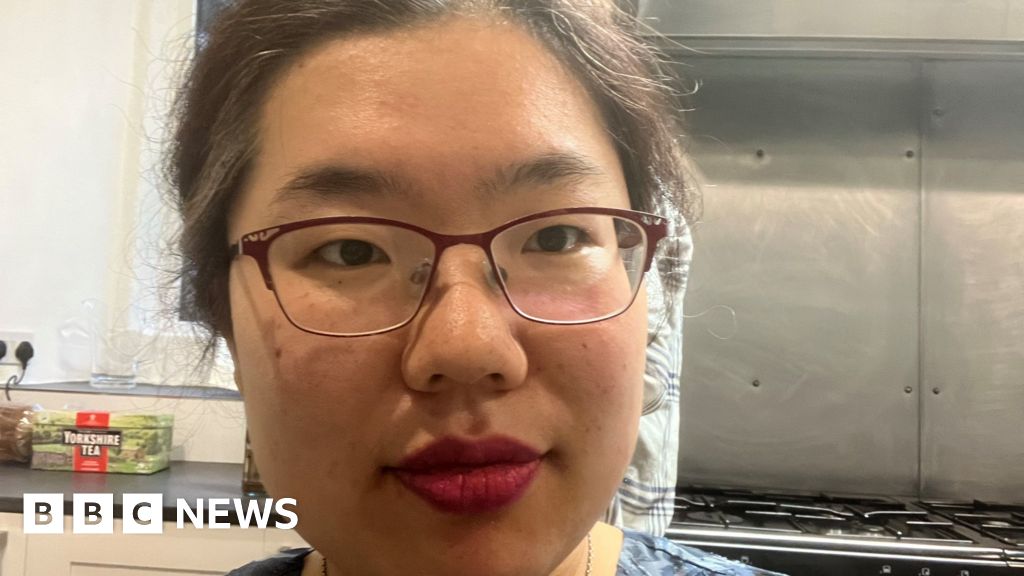
Image source, Getty Images
- Author, Mitchell Labiak
- Role, Business reporter, BBC News
Lae arrived on time for her job interview at a law firm in Bristol.
But after twenty minutes it was canceled and she was asked to come back the next day.
She left angrily, but later received a message stating that the “cancellation” had actually been a test, which she had failed. She didn’t get the job.
She says the experience was “totally bizarre” and prompted her to start her own business, where she ensures she has a much simpler recruitment style.
Lae is not alone. According to recruitment agency Hays, more than half of people have had a negative experience during the application process for a new job.
The BBC has heard stories from dozens of people who have had strange, offensive and unpleasant interviews.
What can bad interviews teach us? And what can interviewees and interviewers do to make the experience less questionable?
Like Lae, Aixin Fu also had a bizarre experience when he applied for a job as a minimum-wage student ambassador at a university.
During a group interview, everyone was asked to crawl around on their hands and knees and “moo like a cow.”
“We did that for about three to four minutes,” she recalls.
“At the time I was quite annoyed. It was highly inappropriate.
“But there was a little bit of peer pressure because everyone was doing it.”
The interviewer said they were trying to see if the candidates were “fun”, although Ms Fu suspects that “maybe someone just had a bit of a power trip”.
‘I’m not going to retire anytime soon’
Julie from Missouri in the US says she has learned that interviewers can sometimes be “really isolated” from what it is like to be an interviewee.
This was her conclusion from a video interview she did in 2022 as a part-time copywriter.
At first she felt like things were going well. “I checked all the boxes,” she says.
But near the end the interviewer asked, “How many years do you think you have left?”
“I’m in my early sixties,” says Julie. “I’m not going to retire just yet.”
Age discrimination isn’t the only prejudice people can experience during job interviews.
Pearl Kasirye, a content marketing manager, says she was asked about her heritage during a second interview for a part-remote PR role at a fashion brand in Milan.
Ms Kasirye lives in London and left Uganda to live and study in Europe as a child.
She says the employer insisted on paying her a Ugandan wage instead of a London wage for the remote work because of her background.
She has chosen to withdraw her application.
“Where you come from, you have no control over that,” she says, adding that she has since interviewed people herself and is “so much more deliberate” with her questions.
Image source, Pearl Kasirye
Sometimes biases can be coincidental – or at least less explicit – but still just as difficult for the interviewee.
Tom (not his real name) is an IT engineer who was once asked to film answers to questions for a warehouse worker job, rather than talking to someone in a formal interview.
Tom describes himself as someone with autism, although he does not like to share that with people.
He says he needs clear instructions during an interview process and prefers to talk face-to-face, describing the filming process as “distant – like talking to a computer”.
‘Economic liability’
Many people also told the BBC that they had been discriminated against during recruitment based on their gender.
According to data from recruitment platform Applied, almost one in five women are asked during recruitment processes whether they have or plan to have children.
One of those is Khyati Sundaram, CEO of Applied, who says she’s been asked “more times than I can count.”
It is illegal for employers to ask candidates about their marital status, whether they have children or plan to have children.
Despite this, Applied found that the problem is even worse for women applying for senior roles, with two-fifths of women asked the same question.
Ms Sundaram says one reason for this is the perceived “economic lability” of pregnancy. “The higher the wage, the more maternity you have to pay to find coverage, and they don’t want that hassle.”
Sometimes the hiring process sucks, not because of bias, but because, as Ms. Sundaram puts it, “There is no measure of what good looks like on the interviewer’s part.”
Her top tips for interviewers are to ask each candidate the same questions and design these questions with “marginalized groups” in mind.
As for Aixin Fu, she says her experience has taught her to stand up for herself more in future interviews, especially if she’s asked to do something “bizarre, unreasonable, or not a requirement of the job” — like mooing like a cow .
Leave a Reply